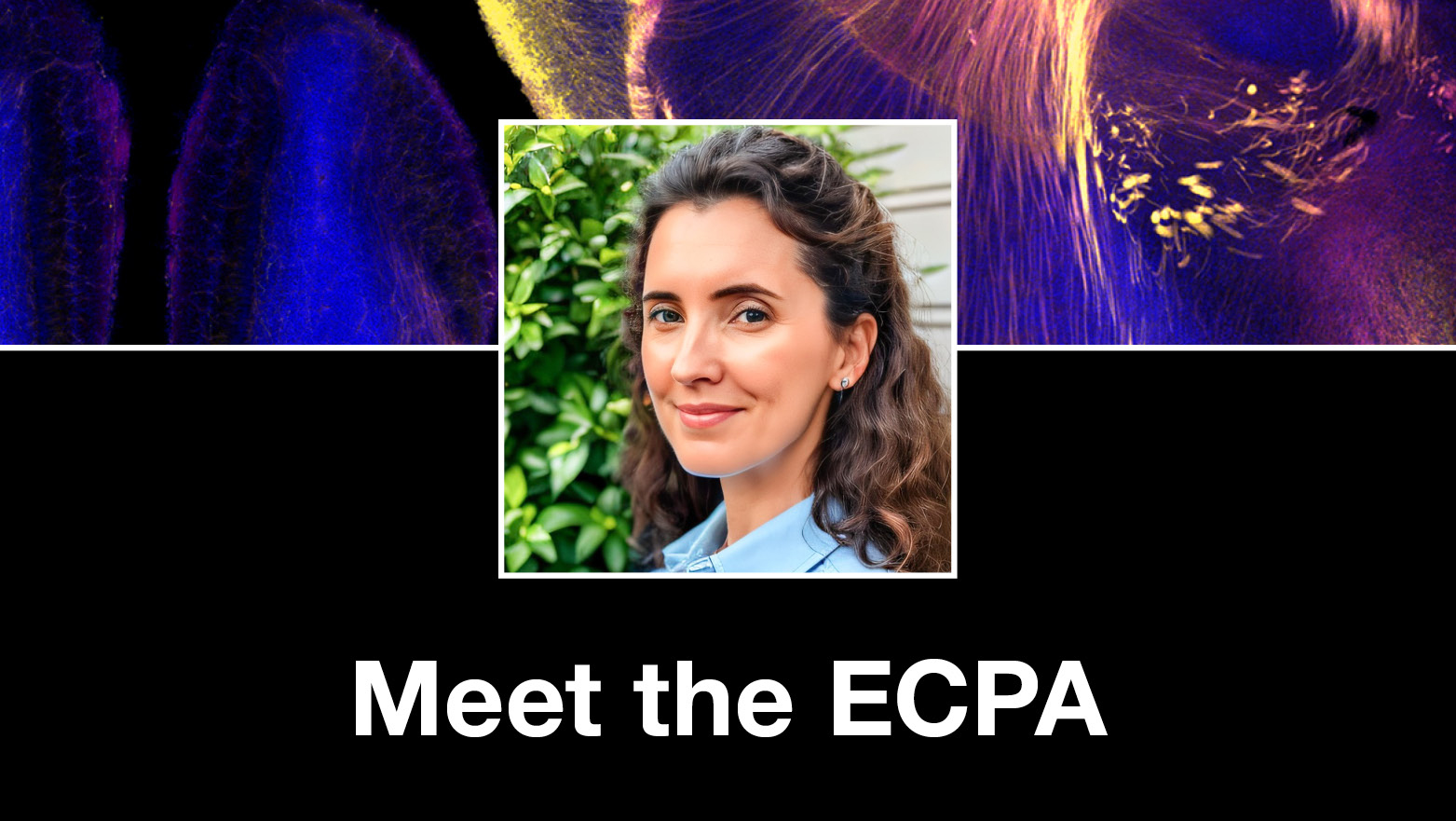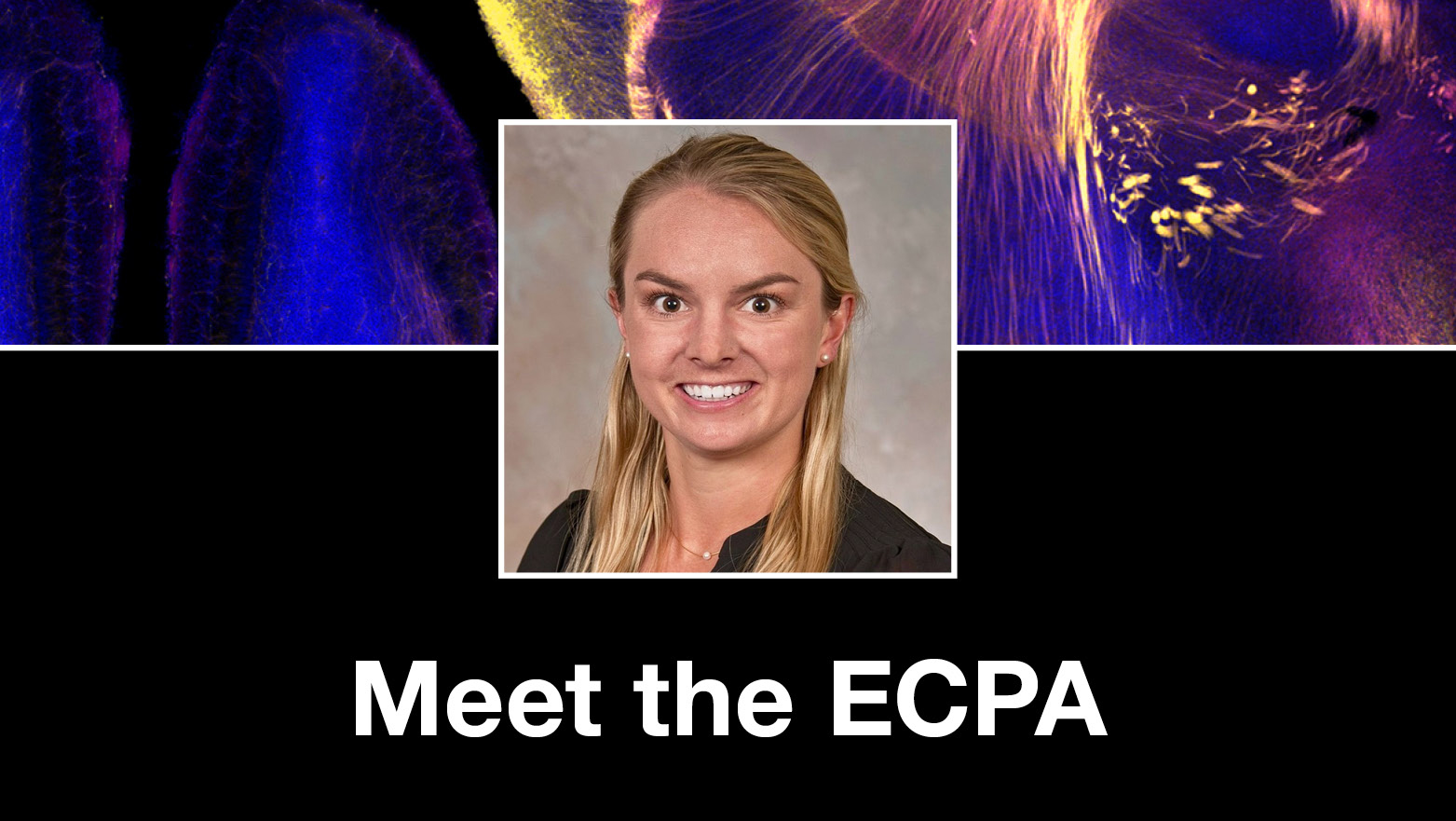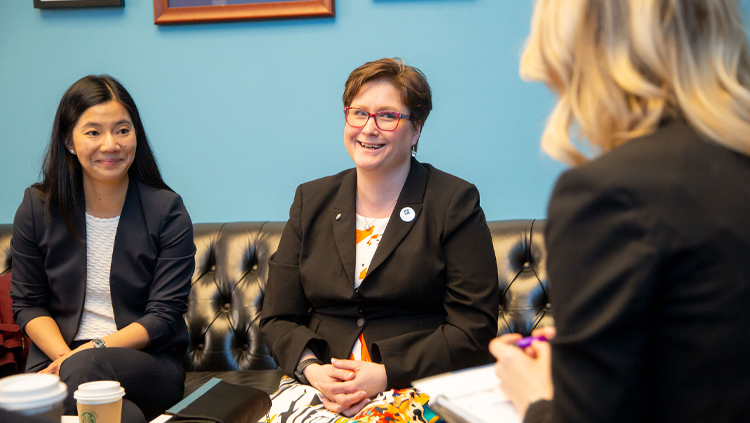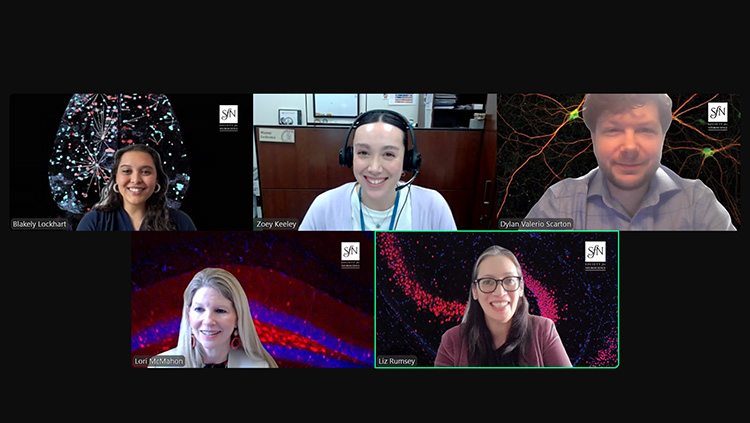This interview is part of the “Meet the ECPAs” Neuronline collection, which spotlights current Early Career Policy Ambassadors (ECPA) on their careers, interest in science policy, and current advocacy work. Read onto learn about Thomas Xin, fourth-year graduate student in the Interdepartmental Neuroscience Program at Yale University, interested in communicating science to the public and advocating for those affected by uncertain NIH funding.
Describe your journey in neuroscience and current research.
My research interest is to understand the brain mechanisms that underlie sensory experiences and to develop methods to interact with the brain, such as brain-machine interfaces and neuromodulation. I began my research journey as a freshman at the Sepulcre Lab at Massachusetts General Hospital, where we delved into the intersection between functional connectomes and genetic expression profiles. Later, for my senior thesis, I examined the impact of chronic sleep restriction on the brain at the Division of Sleep Medicine at Brigham and Women's Hospital. My current research, under the supervision of Hal Blumenfeld at the Neurology Department of Yale School of Medicine, aims to understand the role of the subcortical arousal system on visual conscious experiences. To this end, I work with patients with neurostimulator implants, which enable recording and stimulation at a high temporal resolution. I also use machine-learning techniques and computational biophysical models for mechanistic insights into the neural basis of sensory conscious experiences.
Why are you interested in science policy and advocacy?
My early exposure to the intersection of science and the public was at Harvard's Institute of Politics, where I participated in a tech policy group to understand the technological and economic barriers to the adoption of solar panels for Massachusetts residents. Another inspiration came from my undergraduate thesis advisor Charles Czeisler at the Brigham and Women's Hospital, who has a public health initiative advocating for the importance of sleep health.
These interests only materialized in recent years due to the increasing uncertainties in NIH funding, which can be especially impactful for trainees and early-career investigators. Even a delay of several months can come at a great personal and professional development cost. After many people around me faced these challenges, I felt an urgency to do my part to advocate for science funding and policy. This led me to apply for the ECPA program and challenged myself to leverage my training and experiences to advocate for my fellow scientists.
What does being an ECPA mean to you? Can you describe the two advocacy-related projects you proposed as part of the program?
For me, being an ECPA means a sense of responsibility. The recent funding uncertainties in NIH led me to reflect on the many resources I enjoyed as a graduate student, such as training grants and fellowships. I came to realize that those are the results of the advocacy work of those before me, and I wanted to take this responsibility as an ECPA to advocate for future scientific trainees.
My proposed activities are centered on the theme of creating value for the public, not just the scientific community. For the first activity, I plan to partner with established general social media influencers to create neuroscience-related entertainment content in collaboration with faculties at Yale University. For the second activity, I will partner with local high schools as a "reverse advocacy" engagement. Instead of teaching neuroscience to the students, the students will be tasked with presenting the importance and relevance of neuroscience research to their community. This project not only leverages each student's existing community relationships for advocacy but also hopefully can motivate the next generation of scientists and advocacy leaders.
Why do you feel it’s important to speak to your federal policymakers on the importance of continued support of federal investment in biomedical research?
As part of the ECPA program, I had the pleasure of participating in the SfN Hill Day 2024. I realized that an important part of advocacy is not just about the "ask" but also about offering ourselves as a resource for the policymakers. Just as scientists use evidence to validate hypotheses, lawmakers also need information and facts to act. Thus, it is crucial for lawmakers to have a line of communication with scientists for timely feedback and information to deal with any legislative challenge. In addition, speaking to policymakers also adds a personal touch to our advocacy work. Many fields in neuroscience, whether basic or clinical, can resonate with many people at a personal level. Thus, speaking to policymakers can place not only a face but also a story to their legislative priorities.
How has being an SfN member benefited you in both your professional career and advocacy journey?
Being an SfN member has elevated my professional development. The annual meeting has always been an incredible experience to connect with scientists who have similar interests, whether that’s in seminar rooms and poster boards or in coffee lines and restaurants. In addition, the annual meeting provides many resources for early-career trainees. I especially enjoyed the career roundtables, where I had opportunities to chat with mentors in different career paths in an informal setting. Beyond the annual meeting, SfN as a community also provided many professional development resources that have been very helpful at each stage of my career. As for my advocacy work, SfN has a truly transformative impact. The Hill Day training was very well-organized and provided resources for any advocacy scenario. In addition, the Hill Day community of SfN members dedicated to advocacy was inspiring. I look forward to continuing to develop meaningful relationships within the advocacy community in SfN and becoming a better science advocate.
What is one fun fact about you that you would like to share?
I used to compete in professional yo-yo tournaments.











